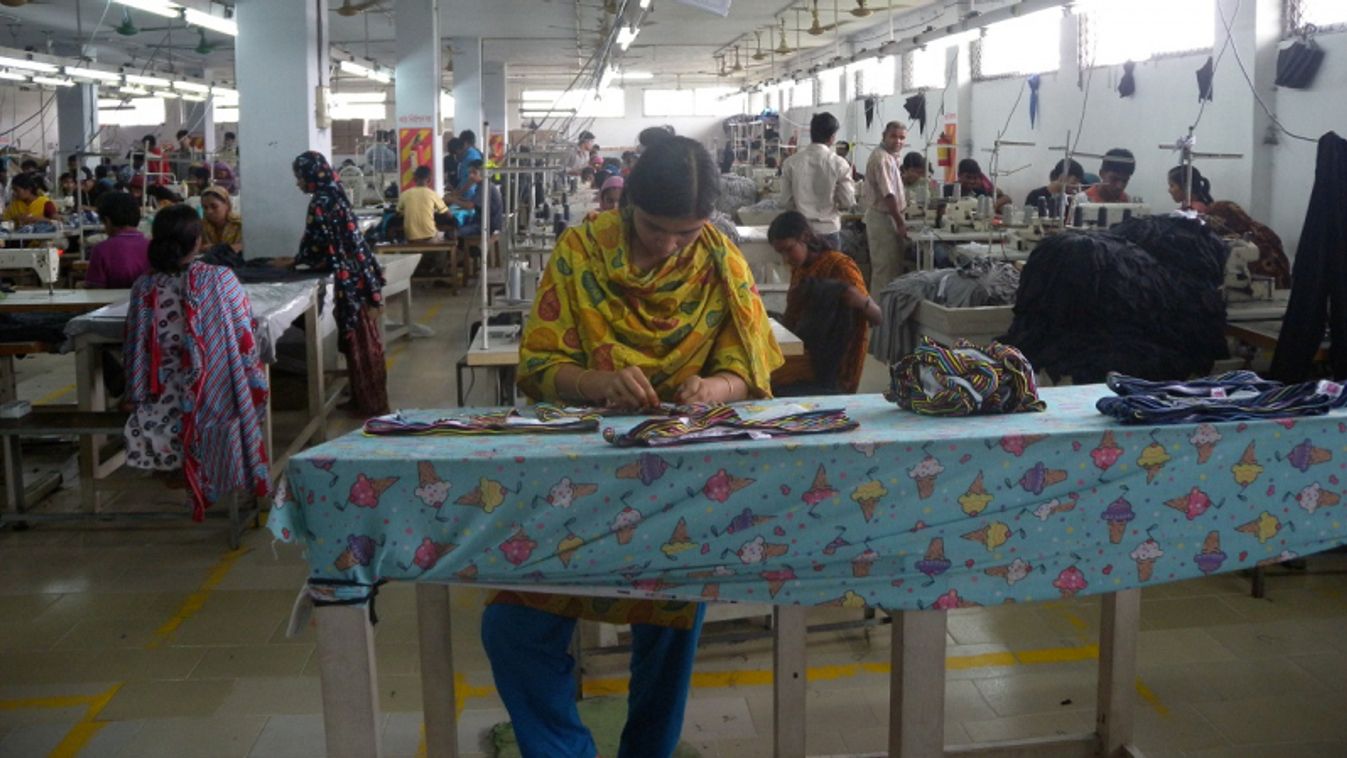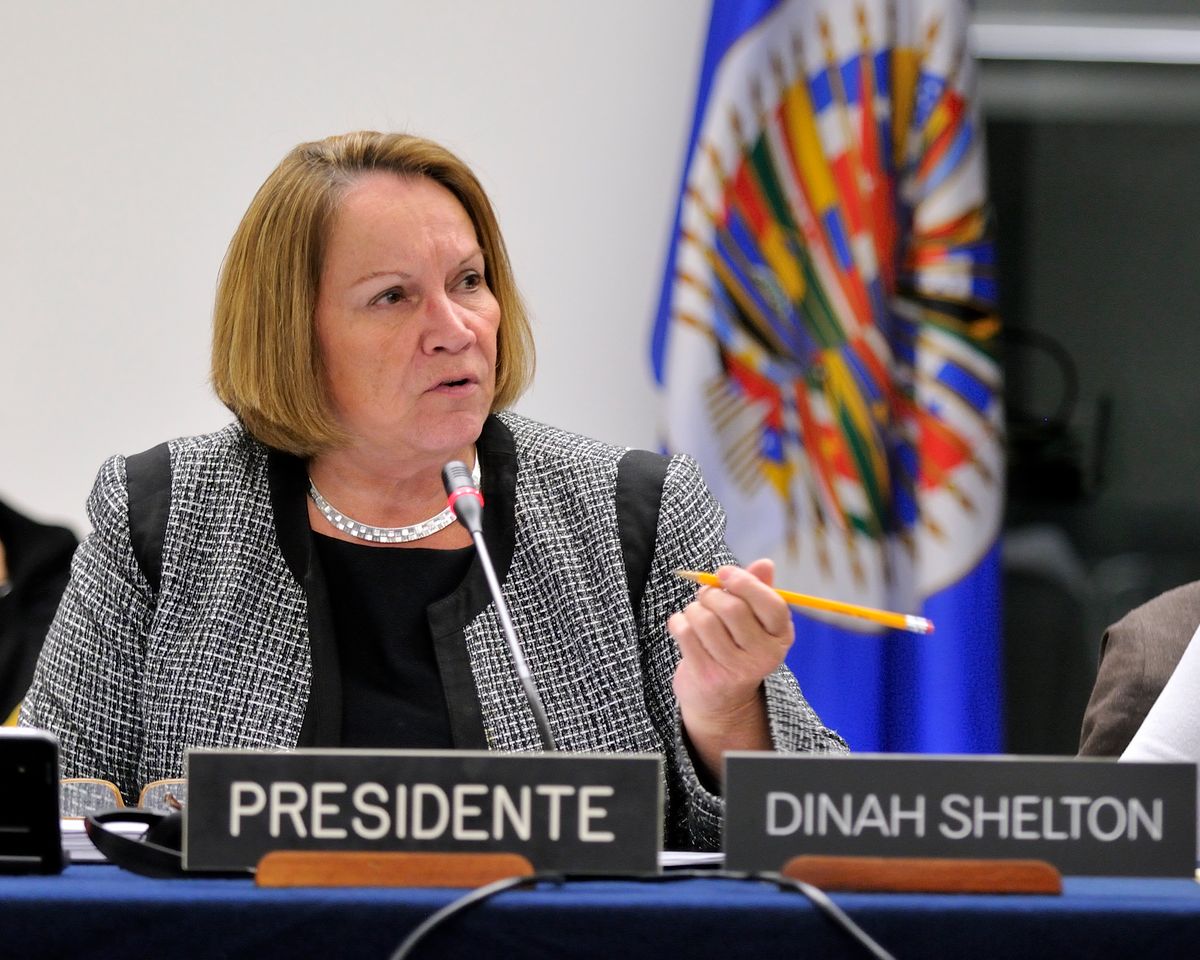Ez is napvilágot látott: Magyar Péter tudhatta, milyen bosszút forralnak Magyarország ellen

A szakértő szerint közölték a Tisza Párt elnökével, mi a feltétele a hivatalban maradásának.

I think it is a mistake to view human rights solely as being concerned with state actors. The very first human rights movement was actually addressing non-state actors. It was organized by churches and religious leaders, and it was directed at halting the slave trade. It was directed primarily at private businesses – Dinah Shelton professor of international law pointed out in a conversation with Lénárd Sándor.

If we look back to the history of fundamental human rights, we can discover that the major turning points of their development – e.g. the creation of constitutions and the adoption of international human rights documents – are marked by its relations to states. They are designed to limit and discipline the states’ regulatory reach. However, this perspective may turn out to be a bit misleading today in light of the emergence of economic globalization as for example large corporations can also have major impacts on human rights. Can you shed light on the new threats to human rights in an age of globalization?
I agree that the post-World War II international human rights movement was largely designed with the totalitarian regimes in mind. It was to restrain the powerful and to stop them from violating human rights. But if we look at the human rights movement in a longer historical evolution,

the very first human rights movement was actually addressing non-state actors.
It was organized by churches and religious leaders, and it was directed at halting the slave trade. It was directed primarily at private businesses. It was not concerned so much with ending slavery as it was focused on ending the slave trade, particularly the transatlantic slave trade. So right from the beginning, the first international human rights movement was concerned with non-state actors. And if we come forward to the 19th century, you start to see the beginnings of the international labor movement. ILO, established at the end of World War I is still the only international organization in which governments have two representatives, labor has one and management has one. It remains concerned with regulating capitalism and the abuses that were taking place and seemed to be taking place at the end of the 19th century. So I think it is a mistake to view human rights solely as being concerned with state actors. From the very beginning there have been major movements concerned with non-state actors. It continued to be concerned with international criminal enterprises and terrorism, among other things.
In the third wave of globalization what we now see is a much more important role being played by transnational corporations, especially with regards to the extractive industries. They have been responsible for so many human rights violations around the world. When I was on the Inter-American Human Rights Commission, I would say three quarter of the cases that we dealt with concerning indigenous people in Latin-America had to do with extractive industries such as gold mining and other kinds of mining, building hydroelectric or other major infrastructure projects.

What are your experiences as the former president of the Inter-American Human Rights Commission with regards to the rising impact of transnational business activities on human rights?
Because of the way the human rights system was set up,
the Commission has no jurisdiction over corporations or other transnational business enterprises.
We can only deal with cases brought against states. So we had to look for ways to tie the states to whatever the misconduct was going on. It was largely a matter of tying the states to omissions or failures: failure to regulate or failure to control the corporations doing business in their territory. We rarely got cases brought against the home state of the companies. Occasionally something would come up where the petitioners tried to go after Canada for some of its companies’ gold mining activities, but by and large it was mainly dealing with places like Guatemala and Panama, the sites where the wrongful acts were taking place rather than looking at which country was indirectly responsible for failing to control the corporate activities. Whenever we got a case like that, we could not directly talk to any of the corporations that were involved. That was a problem. It would have been much easier if we could deal directly between the victim complaints and corporate conducts. But we could not.
Trade and investment rules allow large companies to form worldwide long supply chains and outsource productions and services. This in turn creates the phenomenon of the “race to the bottom” whereby countries around the world tend to compete by lowering environmental, human rights and other legal standards that serve the protection and well-being of the population. I am wondering how you see this tension between international economic rules and human rights. How do they arise before human rights courts or other control mechanisms?
To some extent the gap has been narrowing but in other ways it is not very much affected. The reality is that human rights and the trade rules grew up in separate domains. Each state has a state representative for human rights and others for trade. They rarely talk to each other. One of the big changes came with the AIDS epidemic; it was the first time that the WHO and the WTO actually got together and developed new rules for compulsory licensing of AIDS treatment medications as a health exemption to the WTO normal rules. The ongoing pandemic is going to increase that kind of tension. So there have been occasions where the emergency situations have provoked the trade rules to relax to take care of global situations that involve human rights. That being said,
the tribunals that have emerged for trade and for human rights are completely independent of each other.
Of course, each tribunal will apply the rules that was written for the underlying treaty that created it. So, trade courts tend to apply only trade rules, human rights courts will say that trade treaties cannot serve as defense to human rights violations. So there have been a compartmentalization of these rules in different domains. I think that the WTO started to be a little bit more sensitive particularly to environmental and health regulations. There needs to be some sort of integrated court that has broader jurisdiction like the ICJ to be able to deal with these issues in an integrated fashion.
The fragmented nature of international law as well as the more efficient enforcement mechanisms of the trade and investment area could easily lead to their de facto priority at the expense of human rights and environmental obligations. How would you redress this anomaly? What regulatory or interpretative reforms would you consider necessary?
It does have a priority in the sense that trade is a self-enforcing mechanism. If one side breaches a trade agreement, it risks retaliation from the other party. In contrast, with regards to human rights, if one side tortures, you cannot retaliate by torturing in turn. It can depend on reciprocity in a sense, but the Inter-American Court has issued a ruling in a case involving Paraguay where the defendant state, Paraguay, invoked a bilateral investment treaty with Germany in its defense of the alleged violations of indigenous land rights. The Court said very clearly that
a bilateral investment treaty cannot be invoked as a defense to violations of human rights.
They very clearly prioritize human rights because it is a human rights tribunal. So one way to redress this imbalance is to give human rights courts greater latitude to apply their own law in the face of investment and trade treaties that might involve the state in violating human rights.
To what extent could the ten years old United Nations Guiding Principles on Business and Human Rights (UNGPs) rebalance the current asymmetry of international law as Professor Bruno Simma pointed out? What role should the regulatory power of sovereign states along with the principle of subsidiarity play in it?
One of the things I think is very important in the UNGPs is that
it also emphasizes not only the host state’s responsibility but the home state responsibility
(that is, where the corporations are located in law). I think that is very important development. It could help alleviate this race to the bottom by saying not only the host but the home state has responsibility to control the activities of their corporations no matter where they take place. So I am very in much in favor for the UNGPs, I am just sorry that they are not legally binding.
Some of the international human rights mechanisms already began to apply the UNGPs. How do you see this development and the potential dialogue among these mechanisms?
I think it would be good if they have a dialogue with trade representatives. They are now speaking to themselves, and they rarely interact with trade representatives, which they would need to do in order to really have an impact. They do talk sometimes to corporate representatives but a regular dialogue between trade, investment, environment and human rights would be a good thing. For example,
investment courts are very reluctant to apply human rights just as human rights courts are still reluctant to take into consideration the UNGPs.
I am not very confident that corporate codes of conduct have much of an impact, because they are basically window dressing. Corporations draft these codes, but they rarely enforce them internally. Far more effective had been the shareholder actions, shareholder lawsuits against board of directors. Those had a greater impact in changing corporate behavior.
How do you see the interactions among human rights courts? The Inter-American system is more open to the UNGPs than the Strasbourg court. Do you think that human rights courts can learn from each other?
They not only can learn from each other, they already do so. They often cite each other’s jurisprudence to reinforce the authority of their own decisions. I think this is a very valuable practice in promoting the universal norms of human rights.
With regards to the ongoing treaty-making process which regulatory scheme would you prefer? Do you think a supranational regulatory system is more adequate or would you rather see a treaty that is leaning on states?
I think
a state-based system would garner much more support.
However, the problem with the state-based approach is that corporations have a tremendous amount of power in most countries. Thus they will try to block most efforts in enforcement. Therefore
the whole system would rely upon a balancing between the interests of the corporations and the most affected population.
I think climate change would be a good area to test whether states are willing to rein in some of the corporate activities that are causing problems.
In the past decade we could witness the rise of information globalization along with platform based businesses. This phenomena also has distorting effects on internationally recognized human rights, especially on the freedom of speech and the right to be informed. What approach should be necessary in your view to protect rights against platform based companies?
That is really a difficult question. We have seen many example when Facebook and platform based businesses have the power to undermine or influence elections.
Some of these media platforms became so strong that free speech basically disappears.
So there is another area where there has to be international coordination to get some common rules that states can enforce domestically against these very large platforms to try to ensure that dissidents’ speech actually gets heard.